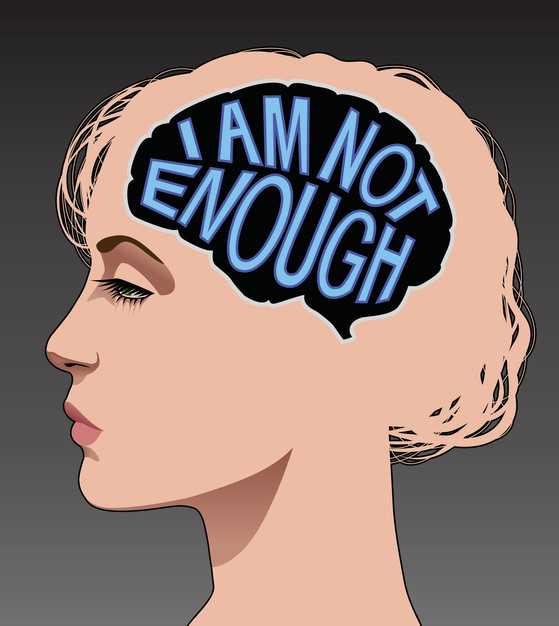
If you are experiencing symptoms of depression, you should know that there are effective treatments and help is available.
When you are depressed, your self-esteem wanes and you may start to dislike yourself. People with depression often think of themselves as “worthless, incapable of any achievement, and morally despicable.” Why do people who are depressed have this negative self-appraisal? And what could be happening in their brains?
The study: In 2017, researcher and psychiatrist Christopher Davey and his colleagues compared the brain blood flow of 86 unmedicated depressed patients with that of 95 healthy control participants using a type of magnetic resonance imaging (MRI) called functional MRI. Depressed patients were in the early stages of their illness, but, as is often the case, two-thirds of them had an anxiety disorder as well.
The tasks: The researchers asked participants to lie in an MRI machine, and then gave them several tasks to complete while they imaged their brain blood flow. The first task involved self-appraisal. During this task, participants had to indicate whether a certain descriptor fit them or not by pressing a left or right button that corresponded with “yes” or “no.”
Then, they were asked whether words had four or more vowels (a task to test external attention). As you can imagine, this does not require internal attention like the self-reflection task did. The answers are in the words themselves.
As they answered these questions, the researchers documented whether the connections between different brain regions were affected.
What did we learn about people who are depressed?
There were no differences in reaction times to the self-descriptors in the depressed and control groups, and they were similarly accurate about the vowel test too. However, depressed participants said that the negative adjectives described them far more often than the control subjects, and more often than not, the adjectives indicated that they did not like themselves.
Choosing a self-descriptor means that you have to match the word with an impression that you already have of yourself. This matching process involves brain regions at the front and back of the brain. Like a well-coordinated rowing team, these different regions in the brain must be flexible and coordinated so that this matching can occur. In the case of self-appraisal, activation at the front of the brain (the medial prefrontal cortex) often moderates activation at the back of the brain (posterior cingulate cortex.)
As researchers had expected, when depressed patients reflected on themselves, the brain’s front and back rowing teams were not coordinated. When the brain region at the back of the brain was activated by a self-descriptor, the front region overreacted when trying to control it. The greater the overreaction, the worse depressed people felt about themselves compared to control subjects.

Recent Comments